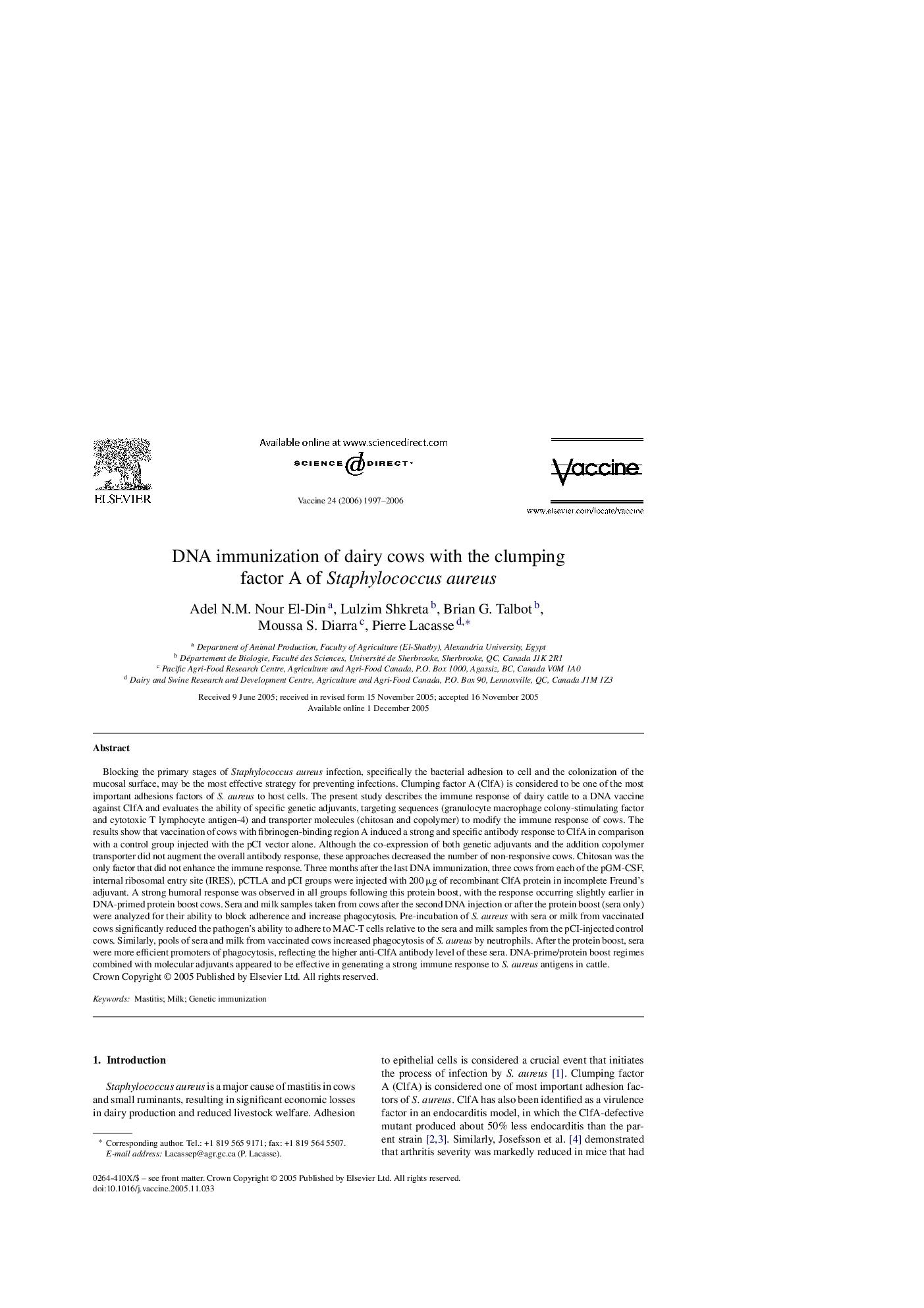| Article ID | Journal | Published Year | Pages | File Type |
|---|---|---|---|---|
| 2409631 | Vaccine | 2006 | 10 Pages |
Blocking the primary stages of Staphylococcus aureus infection, specifically the bacterial adhesion to cell and the colonization of the mucosal surface, may be the most effective strategy for preventing infections. Clumping factor A (ClfA) is considered to be one of the most important adhesions factors of S. aureus to host cells. The present study describes the immune response of dairy cattle to a DNA vaccine against ClfA and evaluates the ability of specific genetic adjuvants, targeting sequences (granulocyte macrophage colony-stimulating factor and cytotoxic T lymphocyte antigen-4) and transporter molecules (chitosan and copolymer) to modify the immune response of cows. The results show that vaccination of cows with fibrinogen-binding region A induced a strong and specific antibody response to ClfA in comparison with a control group injected with the pCI vector alone. Although the co-expression of both genetic adjuvants and the addition copolymer transporter did not augment the overall antibody response, these approaches decreased the number of non-responsive cows. Chitosan was the only factor that did not enhance the immune response. Three months after the last DNA immunization, three cows from each of the pGM-CSF, internal ribosomal entry site (IRES), pCTLA and pCI groups were injected with 200 μg of recombinant ClfA protein in incomplete Freund's adjuvant. A strong humoral response was observed in all groups following this protein boost, with the response occurring slightly earlier in DNA-primed protein boost cows. Sera and milk samples taken from cows after the second DNA injection or after the protein boost (sera only) were analyzed for their ability to block adherence and increase phagocytosis. Pre-incubation of S. aureus with sera or milk from vaccinated cows significantly reduced the pathogen's ability to adhere to MAC-T cells relative to the sera and milk samples from the pCI-injected control cows. Similarly, pools of sera and milk from vaccinated cows increased phagocytosis of S. aureus by neutrophils. After the protein boost, sera were more efficient promoters of phagocytosis, reflecting the higher anti-ClfA antibody level of these sera. DNA-prime/protein boost regimes combined with molecular adjuvants appeared to be effective in generating a strong immune response to S. aureus antigens in cattle.
